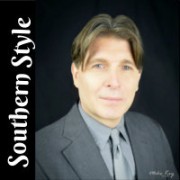What is an antique fiddle?
Have you ever glanced through a classified ad section in the newspaper and saw an ad for an antique violin, mandolin or some other type of instrument?
When I see an ad of this nature I wonder how the owner values the instrument. Is it like a mahogany federal chair from the 1700s or a walnut pie safe from the 1820s?
These are both fine examples of antiques.
Does the title antique before an item make an instrument better or more valuable?
When a 200-year-old chair is bought it can be used to sit upon but can a 200-year-old fiddle be played?
I answered one of those antique violin ads once and found a beautiful instrument that had little or no practical value as an instrument because of a lack of a good sound.
Although I have seldom passed up a fiddle at a good price, and the lady assured me that it was a fine antique and worth every penny she wanted, in this case I did.
I did not take the time to suggest to her what I am going to share with you:
An antique is a car, piece of furniture, fine piece of glassware or china, not an instrument. To make an antique valuable several variables need to be in place, a group of people who want it, in most cases good quality workmanship and a general rule of thumb a three-digit age, with the exception of cars.
An instrument should improve with age if made well, but if it is junk now it will be junk 200 years from now.
An antique should retain its function of original intent. A chair should be sat upon, car driven and instrument played.
If an instrument belonged to Grandpa then it has a value, a sentimental value, but it does not make it valuable to outsiders, that is unless your grandfather was Fritz Kreisler, Stephane Grappelli, then there is an added value of celebrity and musical history.
Every musician would like to find that early Gibson Mastertone banjo under a bed or that original Stradivarius violin tucked behind the rafters of the basement, but not everyone will. Most will not even come close.
That does not mean you should stop looking. Just beware of those who think of old instruments as antiques to be looked at and not played. Some of the finest instruments played by professionals on symphony stages around this world would probably be found to be 2-300 years old, are they valuable because they are old, no, they are valuable because of the time the maker took to create them and give them an enduring sound that is pleasing to hear.
The best way to choose an instrument no matter the age is whether its sound is pleasing to you.
Who is going to have to listen to it more? If you can’t stand it no matter how old it is it’s worthless to you.


